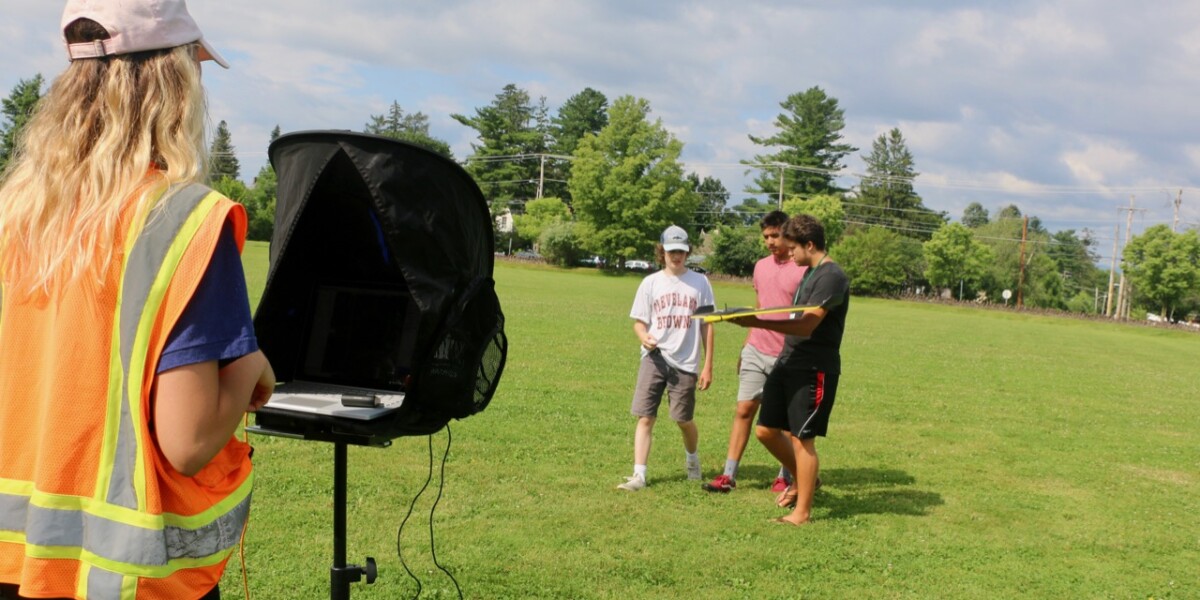A fight or flight response. An inability to call out or fight back. Feelings of disassociation. Non-linear memories. These are all reactions a person might experience during a traumatic experience.
For Jeff Nolan, understanding trauma and its potential lasting effects, while ensuring fairness to all parties, are crucial when investigating and adjudicating a sexual assault case.
Nolan, UVM ’88, is an attorney with Dinse, Knapp & McAndrew, PC, in Burlington. He trains, advises, represents clients, and conducts investigations nationally on matters including Title IX, the Clery Act, and threat assessment and management. He has participated in curriculum development and the presentation of trauma-informed sexual assault investigation trainings for government-sponsored programs, higher education institutions, and organizations across the United States.
He will speak at the UVM Legal Issues in Higher Education Conference in October at the UVM Davis Center on a variety of matters, including campus threat assessment, guns on campus, fair, trauma-informed investigations, and proposed changes to Title IX regulations related to sexual violence on campus.
We talked to Nolan about trauma-informed investigations, how trauma may affect memory, and how the U.S. Department of Education intends to change Title IX regulations, which are expected to take effect in 2018 or 2019.
Complaints of sexual harassment and harassment filed under Title IX at college campuses increased nearly five times over 20 years in the United States, according to a new study. Why is that?
I think that the increase is based primarily on greater awareness of discrimination. We’re seeing a lot more awareness of sexual assaults, and schools have made substantial improvements in the way they have responded. There’s confidence in the system and schools do much more outreach than they used to. Schools are required to do this under the Clery Act, a federal statute requiring colleges and universities participating in federal financial aid programs to maintain and disclose campus crime statistics and security information.
Can you describe a trauma-informed investigation for sexual assault?
In recent years, many colleges and universities have recognized that the quality of their sexual assault and intimate partner violence (IPV) investigations can be enhanced if they take into account the potential neurobiological effects of trauma when conducting those investigations.
Trauma-informed investigation and adjudication training programs usually include a discussion of theories regarding the potential neurobiological effects of trauma. There is usually a discussion of how chemicals such as catecholamines, corticosteroids, oxytocin, and endogenous opioids may be released into the bloodstream as a result of trauma. These substances can interfere with the function of portions of the brain, including the hippocampus and amygdala, that are involved with the encoding of memory.
So, the theory is that individuals who have experienced a traumatic event may not be able to recall details of the event in a chronological manner, or may not be able to recall some details at all, or their ability to recall details may improve over time, and/or their affect when describing the event may seem evasive or counter intuitive—they might be laughing, smiling, or seem emotionless.
We need to learn about the potential effects of trauma to recognize that these counter-intuitive behaviors and memory-related issues should not automatically be viewed as indicators of deception by a complainant, and learn how to ask questions that are effective to get information if someone may have been traumatized. We also need to do this in a way that does not create unfair bias against the other party. I’ve worked hard to articulate how schools can do trauma-informed investigations that are fair.
What do trauma-informed training participants typically learn?
They’ll often learn that interview approaches such as the Forensic Experiential Trauma Interview (FETI) technique account for the potential effects of trauma on memory by focusing on what a witness is able to recall about their experience and related sensory details. This is done rather than demanding that the witness start at the beginning and recount all of the details of the event in a complete, linear manner.
Training also includes examples of how trauma-informed interview techniques have resulted in better outcomes and more thorough investigations in the criminal justice context, because reporting parties are encouraged to attempt to provide the information that they are able to provide, rather than abandoning the process in frustration because they can’t immediately convince a skeptical police officer by providing a seamless narrative.
How can sexual assault investigations remain fair in a trauma-informed approach?
It’s important that schools learn about a trauma-informed approach and understand that it can be fully fair to both parties. Similarly, open-ended questioning techniques can fairly be used with both parties, and both parties can fairly be asked clarifying questions, even regarding potentially difficult topics. A well done trauma-informed investigation does not assume everything a complainant reports is true, disadvantage respondents, or fail to seek answers to crucial questions. Instead, it gathers information from potentially traumatized and/or stressed parties in a way that is often more effective than traditional investigative techniques, avoids snap judgments based on stereotypes, and considers all available evidence the parties are able to provide in a holistic, equitable manner.
How soon do college campuses typically receive a report of sexual assault?
One compilation of insurance claim data that I am aware of showed that the average time of reporting to a university is about eight months. We routinely see cases that are reported six months to a year later.
In the wake of the #MeToo movement, are colleges and universities taking extra steps to ensure prompt and impartial investigations?
I don’t think colleges and universities are having to revamp the process because it’s already highly developed and ready to handle those matters. The challenge of #MeToo is the passage of time on reporting, especially if you’re talking 10 to 15 years. That span of time can make a report much harder to investigate.
In September 2017, Betsy DeVos announced her intention to change Title IX sexual violence guidelines. What is your take?
What I see coming with DeVos’s proposal is more of an emphasis on due process for respondents, and a weakening of some mandates. The biggest challenge is certain language around notice to parties. It will also be interesting to see whether some schools choose to use a higher standard of evidence for reviewing complaints than the previous rules allowed. One aspect of the Obama-era guidance that remains is the responsibility of the school to investigate, rather than leave the matter to law enforcement. Protections for complainants are not going away.




